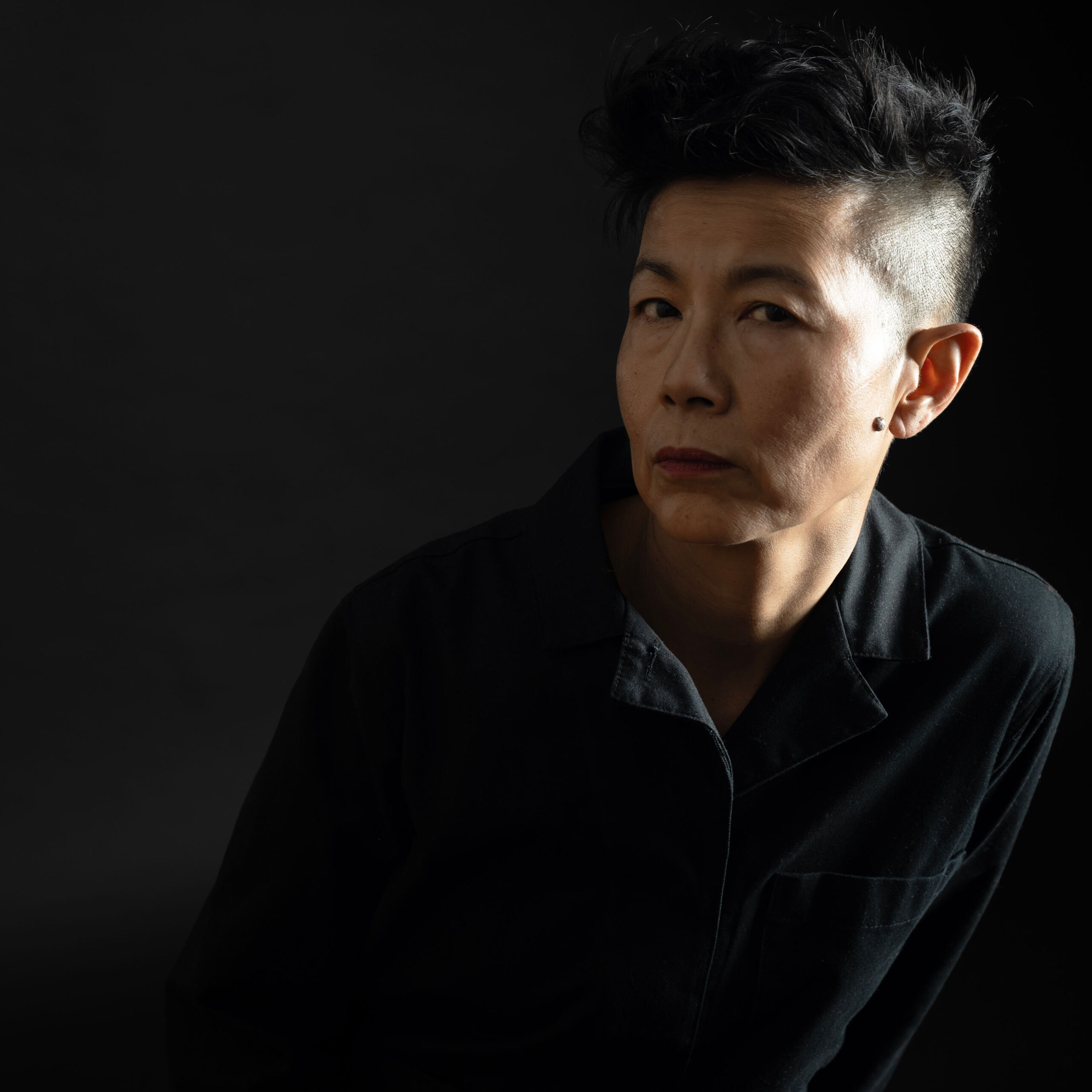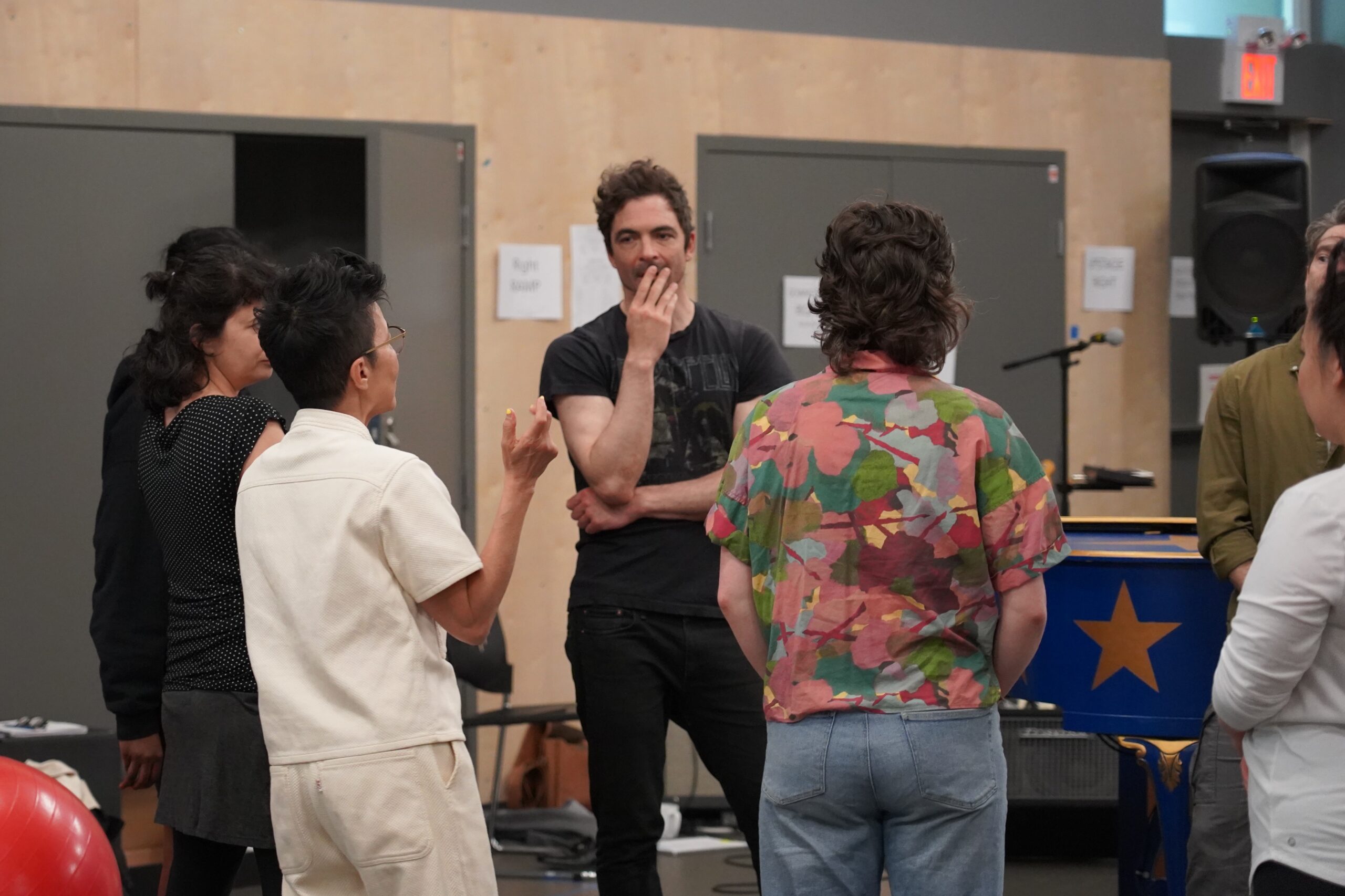Twelfth Night is now well underway on the BMO Mainstage, and it’s been so special to see these talented actors dazzling audiences week after week in what Stir is calling “a bold, sensory feast.”
If you’ve seen Twelfth Night, you’ll know that there’s no shortage of fantastic dance moves (especially from one specific suitor). In today’s Bard Blog, we had the chance to speak with Twelfth Night Movement Director Lee Su-Feh about how they worked with the Mainstage Company to help bring this heightened and topsy-turvy world to life through movement.
 How has your Bard experience been so far?
How has your Bard experience been so far?
The Bard experience for me has been all of the following: joyful, challenging, fun, annoying, delightful, confounding. But on the whole, I have honestly had a really great time. It has been full of learning and wonder for me. In my own work, I usually work on a very different time scale: I obsess over one thing for many years and it is not unusual for me to spend 10 years working on the same thing, or many iterations of the same thing. The Bard experience is more like, “Make something in 10 minutes!” So this meeting of different rhythms, different habits and cultures—it has been a rich one for me even if it hasn’t always been comfortable. I have been blown away at the actor’s process, their ability to take in a million notes ranging from hitting a mark on the stage, hitting a mark in time, to imagining a certain situation, to working with a prop and costumes, speaking poetry; AND still finding play. It is wondrous and it is sacred. I am writing this after a stellar Opening Night and I feel like I fell in love with everyone over the last few months.
You’ve been a choreographer, performance-maker, and educator for the past 35 years. What was it that first drew you to the performing arts?
When I was a teenager in Malaysia, I was part of a children’s theatre group headed by a brilliant woman named Janet Pillai. I think my mother made me join the group so that I would get out of the house, but it became my gateway into a lifetime of dance and performance-making and into a deep relationship, which is still ongoing, with a bunch of artists who were concerned with what art practice meant in a larger post-colonial nation-building project. These early years of my art education happened in studios and stages as much as in the living rooms of my teachers and mentors, me listening in wonder at conversations about traditions interrupted by colonialism and how to carry on with or without them in a society of many cultures and languages. I think my work continues to be in dialogue with these early conversations.
How did you approach the movement directing process with Twelfth Night?
In general, my approach to choreography/movement directing is to create circumstances that allow the bodies in the room to be able to take care of their needs and desires. Pleasure, as distinct from comfort, is the compass for me. For Twelfth Night, there were many conditions that were already at work on the actors’ bodies: Shakespeare’s text, Diana’s vision, Veda’s music, the sets, the props, the usual rhythm of creation and production that the organization demands. In whatever time I had with the actors, I tried to remind their bodies about their ability to find pleasure and to make choices around that. I gave the actors scores, or what I like to call algorithms, for them to practice attending to their needs and wants as they juggled all the demands on their bodies. Then I mostly watched to see what emerged: I looked for patterns, for moments when the actors looked like their bodies were enjoying the moment, and I would say, “Keep doing that!” I looked for things that give ME pleasure, and would say so. I made little adjustments about where and when things could happen. And over time, the choreography emerged out of the bodies amid the text, music, sets, costumes. Long story short, all the cool moves are from the actors.

Lee Su-Feh speaks to the Company of Twelfth Night in rehearsal.
How would you describe the difference between movement directing and choreography?
To be honest, choreography and movement direction are the same thing for me. I think of choreography as the organization of bodies in time and space. In that definition of choreography, one could include governmental policy-making as well as dance-making! The use of the word “choreography” for most people though is usually associated with dance. But dance means very different things to different people. So for me, the use of the word “movement directing” is merely to free myself from any expectations of dance that may be different from mine.
When you aren’t in the rehearsal hall, how do you like to spend your time?
I’m a bit of a gym rat. These days I’m really into lifting heavy weights. During the rehearsal process of Twelfth Night, I had a parallel goal of being able to deadlift my own body weight. I achieved that! I also like looking at my plants grow. And now that summer is here, my goal is to get into the ocean as much as possible. I like long swims in salt water.
Do you have any upcoming projects that you’d like to share with us?
In November, I shall be performing my lecture-performance Touch Me Hold Me Let Me Go at the biennial Dance In Vancouver at the Scotiabank Dance Centre. In this lecture-performance, I talk about, perform, and teach the algorithm of the same name that I have been developing over the last half decade. Along the way, I lead people into a ritual of singing and moving together. These days I am interested in dancing WITH more than dancing FOR an audience. And I am constantly in search of ways to make that happen in non-coercive ways. I use the word algorithm to put myself in conversation with the more opaque algorithms that are in our devices and on the internet: algorithms that increasingly mediate our relationships to one another. I offer my algorithm as a counter-algorithm, to remind us of older technologies in our bodies and of our capacity to build more sustainable relationships with other humans as well as non-humans. More information at www.leesufeh.com.
Thanks so much for chatting with us today, Su-Feh!
To see the work they’ve done on stage, be sure to catch Twelfth Night, running on the BMO Mainstage from June 11 to September 21. Buy your tickets now by visiting our Season Schedule.

